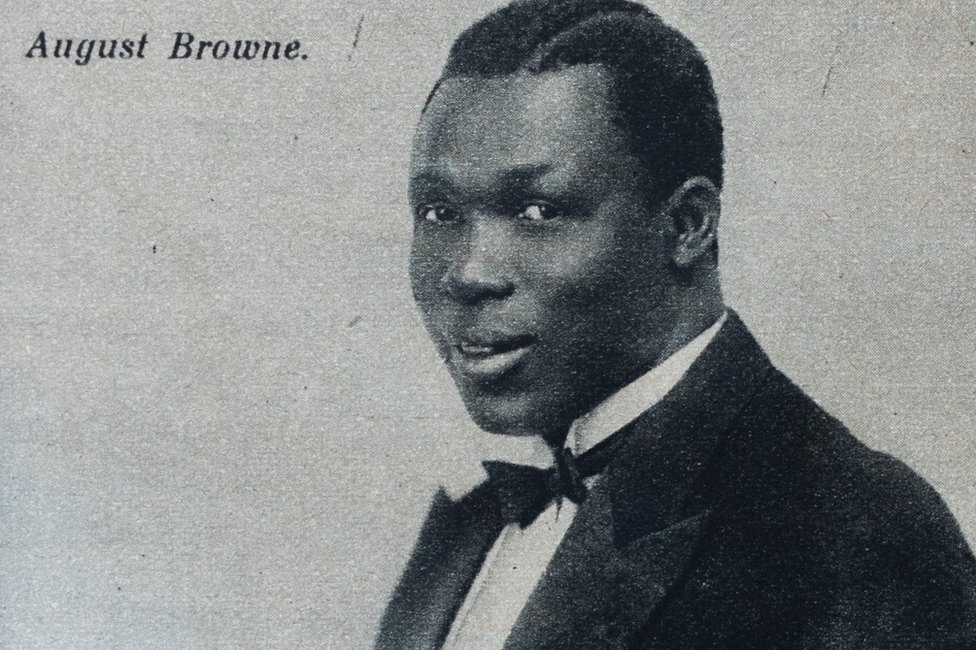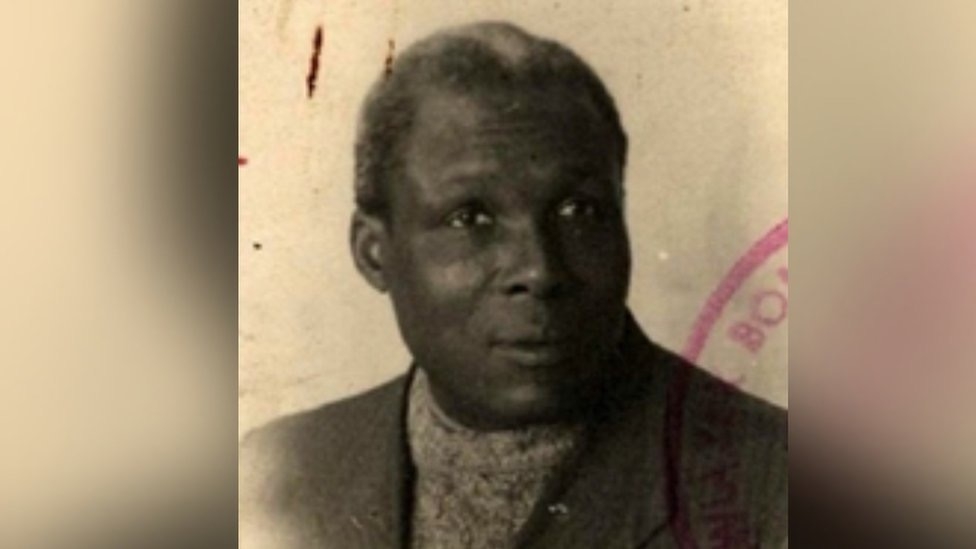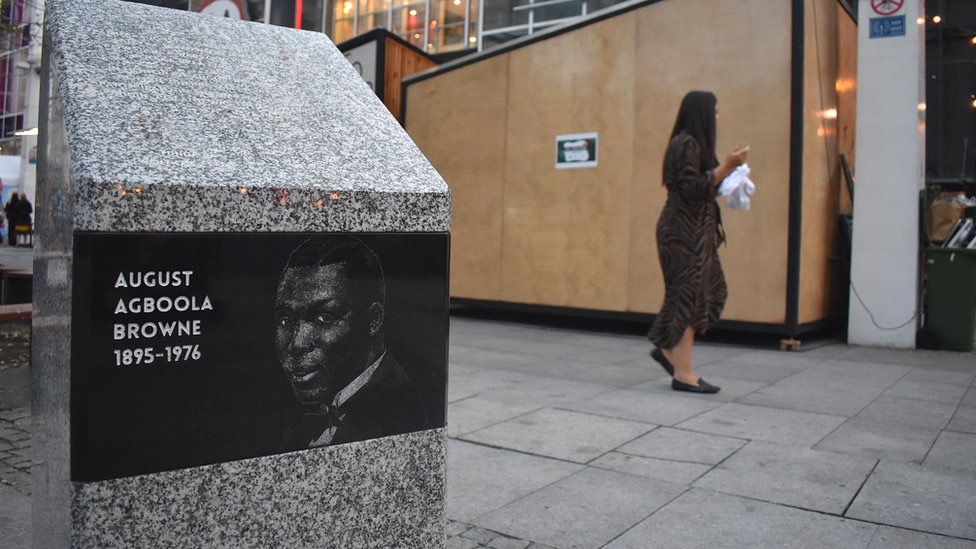In 1939, Poland’s capital Warsaw was a modern, bustling, cosmopolitan city with a population over one million, until it was brutally pounded and attacked by hordes of German bombers and fighters. The vicious Siege of Warsaw lasted for 27 days, followed by the Warsaw Uprising. In the aftermath, an astonishing 94% of the residents in Poland’s capital were either killed or displaced. Out of the 6% remaining, there is one name worth mentioning: August Agboola Browne. A Nigeria-born man, he is believed to be the only Black person in Poland who fought against Nazi occupation.
Browne was a jazz musician in his forties who had been living in Poland for 17 years before he joined the struggle against the Nazis. He fought for his adopted country under the code name “Ali” during The Siege of Warsaw when Germany invaded, and again in the Warsaw Uprising.

(Photo: BBC)
Currently a small stone monument sits in Warsaw commemorating Browne’s life, but his life and contribution may have never been known if it wasn’t for an application he made to join a veteran’s association in 1949. For six decades, the document remained filed away until it was discovered in 2009 by Zbigniew Osinski from the Warsaw Rising Museum. The application, filled out in cursive handwriting featuring a passport-style photo attached to one corner, was the first piece of the puzzle that led researchers to decipher isolated facts about his life and find living descendants.
At the time of his application, Browne was in his fifties and his photo reveals a handsome youthful man with the beginnings of a smile on his face. He was born on July 22, 1895 to Wallace and Jozefina in Lagos, part of the British Empire at the time. He came to England via a British merchant ship with his longshoreman father. From there he joined a theatre troupe touring Europe and settled in Poland via Germany. While the form does not explain his motivation for leaving Nigeria or settling in Poland, it can be said that Browne maintained an adventurous spirit. By the 1930s he had become a celebrated jazz percussionist and played in restaurants throughout Warsaw.

(Photo: BBC)
However, Browne revealed in his form that in the resistance, he distributed underground newspapers, traded electronic equipment and “sheltered refugees from the ghetto.” The ghetto he was referring to was a sealed-off area of the city in which Jews were forced by the Nazis to live and culminated in the deaths of 91,000 Jews from starvation, disease, and murder. Another 300,000 were transported to their deaths in Nazi concentration camps.
On August 1, 1944, the Polish Underground, known as the Home Army, attacked the German occupying forces and quickly regained control of much of the city. Germany sent reinforcements, while the neighboring Soviet army did not send assistance. After 63 days, the Poles surrendered on October 2 suffering casualties of 200,000 dead civilians and 16,000 Polish fighter. Browne made the choice to continue to live in the ravaged city until 1956 before he emigrated to Britain with his second wife. Upon first arriving to Poland, he had settled in Krakow where he married his first wife, Zofia Pykwona, and had two sons, Ryszard and Aleksander. While his marriage failed at the outbreak of war, he still arranged for his children and their mother to seek refuge in England. It is suspected that Browne stayed behind out of his commitment to the Polish struggle.
Brown’s story surfaced in 2009 in the midst of heightened patriotism and xenophobia in Poland. It gained immediate interest from across the political spectrum and there were calls to memorialize him as a national hero. Then-President Lech Kaczynski, co-founder of the conservative Law and Justice party, wanted to honor him for the 65th anniversary of the Warsaw Uprising, according to Krzysztof Karpinski, a jazz historian who served as Vice-President of the Polish Jazz Association. At the time, Kaczynksi’s office contacted the association for more information about Browne and his life. Unfortunately, Kaczynski passed away in a plane crash in 2010, and with him the plan to honor Browne. It wasn’t until last year that a small monument to the Nigerian-Polish resistance fighter was finally revealed. The monument was funded by a non-profit organization, the Freedom and Peace Movement Foundation. His service is honored across the board, by conservatives and progressives alike to symbolize the Poland of today.

(Photo: BBC)
For the last two decades of his life, Browne led a pretty modest existence. He continued working as a musician, at first doing session work, and would give piano lessons from his home. He died at the age of 81 in 1976 and was buried under a plain headstone in a north London cemetery. There is no sign of the traumatic and tumultuous events that he had experienced, which perhaps speaks to the way he led his life in London. Nevertheless, his story remains to tell of the remarkable contributions he made in the struggle against Nazi Germany.
Powered by WPeMatico


